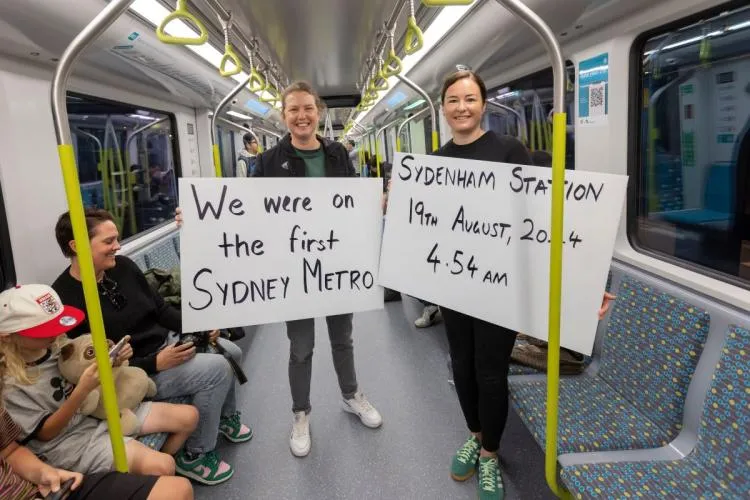
More than 190,000 trips were made on the first day (19 August) of the Sydney Metro extension, according to NSW Government.
The new driverless service in the Australian city extends from the north-west, under the famous harbour for the first time, and through the Sydney central business district, with six brand-new underground stations - Crows Nest, Victoria Cross, Barangaroo, Martin Place, Gadigal and Waterloo - and new metro platforms at Central and Sydenham stations.
The 15.5km extension is the latest stage of the M1 Northwest & Bankstown Line, which has stops at 21 stations between Tallawong and Sydenham. The remaining 13km of the M1 Line will open after the conversion of 10 existing stations on the T3 Bankstown Line.
Around 30 services per hour run at peak times, with capacity to move more people across Sydney Harbour in the busiest hour than the Sydney Harbour Bridge and Sydney Harbour Tunnel combined.
It means 2,645 new metro services will travel through the heart of the city each week, moving 17,000 people each way per hour in the morning rush hour.
A train runs every four minutes in the peak, seven minutes during weekdays between morning and afternoon peak services (increasing after the first month to a train every five minutes) and every 10 minutes during off peak and on weekends.
There are approximately 100 CCTV cameras at every station and 38 cameras inside each train, with 600 secure bike parking spaces at Crows Nest, Victoria Cross, Waterloo and Sydenham, as part of 900 new bike parking spaces across all eight stations.
Platform screen door technology keeps riders away from tracks.
Minister for transport Jo Haylen says: "This is the biggest change to Sydney’s public transport system since the opening of the Sydney Harbour Bridge. It’s going to double rail capacity across our harbour, take pressure off our heavy rail network and deliver a fantastic new transport service for passengers right across our city.”
Sydney Metro chief executive Peter Regan says the new M1 City Line is open "after a year of testing and commissioning, including more than 200 simulated exercises that have included disruption, emergency scenarios and security drills".









